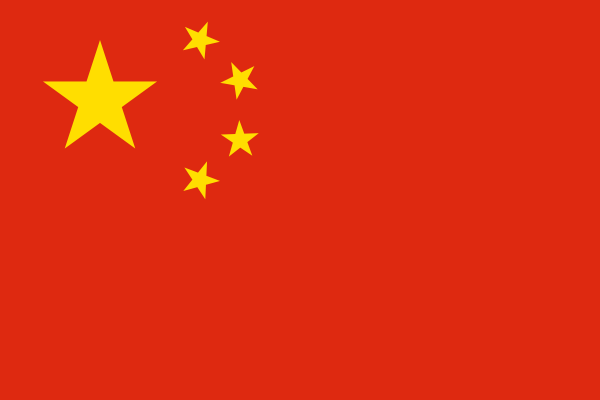For years, there have been widespread concerns about the exploitative practices of foreign investors, particularly Chinese companies, operating in Africa’s resource-rich regions.
By Rudairo Mapuranga
These companies have often been accused of neglecting the rights and well-being of local communities. However, with the launch of new initiatives aimed at promoting more responsible mining practices, China appears to be taking significant steps toward addressing these concerns.
During the 2024 Zimbabwe Alternative Mining Indaba (ZAMI), it became clear that both the Chinese government and civil society organizations are making a concerted effort to ensure that investors entering Zimbabwe are committed to responsible mining practices.
The Chinese Chamber of Commerce of Metals, Minerals, and Chemicals Importers and Exporters (CCCMC) has recently introduced a mediation and consultation mechanism designed to foster communication between mining companies and the communities affected by their operations. This platform offers a way to resolve disputes and address grievances, a crucial development as mining activity intensifies in mineral-rich African nations.
Yimin Yi, a senior campaigner at Global Witness, praised the move, noting its potential to hold mining companies accountable for their environmental and social impacts.
“We worked with our partners to break down the links between minerals and conflict. The Transition Minerals Campaign, launched two years ago by Global Witness, aims to make the current energy transition fair and responsible for both people and the planet by promoting inclusive decision-making. This ensures that people from mineral-rich countries have a real say in decisions. By improving regulations, we can reduce negative impacts and ensure that communities receive their fair share of benefits,” she said.
Global Witness China, which began operations 11 years ago, has collaborated closely with CCCMC to advance responsible mining practices. Over the last decade, this collaboration has led to the development of key frameworks, including the Chinese Outbound Mining Investment Guidance and the Chinese Due Diligence Guidance for Mineral Supply Chains. These policies laid the foundation for the newly launched mediation mechanism.
“While the mechanism is voluntary, it demonstrates that the Chinese mining industry and some companies are willing to open channels for communication with affected communities and discuss possible solutions,” Yi added.
Yi also highlighted the urgency of addressing the negative impacts of mining, sharing insights from her recent visit to a Zimbabwean village affected by lithium mining.
“The situation there is concerning, and the community feels powerless in demanding change from the companies. They cannot afford to wait long for progress in dialogue or for remedies for the harm done,” she said.
Despite the optimism surrounding this new mechanism, there are concerns about its ability to deliver tangible results. Teresa Mutua, a prominent advocate for human rights and social justice, provided a critical analysis of the Chinese Financial Investor Mediation Mechanism—another initiative designed to facilitate dialogue between Chinese investors and African communities.
While the mechanism is seen as a step toward greater accountability, Mutua raised several potential pitfalls that could hinder its success.
“The mechanism presents a novel approach to addressing community grievances related to Chinese investment in Africa. It provides a platform for direct engagement between affected communities and Chinese investors, which is a significant step forward,” she said.
However, she expressed concerns about the mechanism’s industry-led nature, which could limit its impartiality and effectiveness in addressing the power imbalances between communities and large corporations.
Mutua identified several key challenges:
- Resource Constraints: The mechanism may struggle to handle a large number of cases or provide sufficient support to communities due to limited resources.
- Power Imbalance: The industry-led nature of the mechanism raises concerns about bias and whether communities can effectively challenge powerful corporations.
- Retaliation Risk: Communities could face retaliation from companies for filing complaints, particularly in the absence of strong protection mechanisms.
- Cost Burden: The cost-sharing model for mediation could be a significant barrier for communities with limited financial resources.
Mutua emphasized the critical role that civil society organizations (CSOs) can play in supporting communities and maximizing the effectiveness of the mediation mechanism.
“CSOs can provide essential support, from awareness-raising and capacity building to monitoring and advocacy,” she explained.
By working together, communities and CSOs can leverage the mechanism to achieve justice and sustainable development.
Civil society groups have the potential to:
- Raise Awareness: Educate communities about the mechanism, its processes, and its potential benefits.
- Build Capacity: Provide training and support to communities on how to prepare and submit effective complaints.
- Monitor and Advocate: Track the performance of the mechanism, identify trends, and advocate for improvements.
- Mobilize Resources: Secure funding to support community participation and legal representation.
- Engage Internationally: Work with global organizations to promote transparency and accountability in Chinese investments.
The promise of these new mechanisms is clear. If implemented effectively, they could significantly enhance transparency, accountability, and fairness in the mining sector. However, both Yi and Mutua emphasized that these mechanisms must be actively used and rigorously monitored to ensure they deliver real change, rather than becoming mere symbolic policies.
For African countries like Zimbabwe, the stakes are high. The ongoing extraction of critical minerals needed for the global transition to renewable energy must not come at the cost of human rights and environmental sustainability. As Yi highlighted, this is a pivotal moment to ensure that the consultation process spearheaded by CCCMC is not just theoretical but a genuine tool to hold mining companies accountable.
The green energy revolution demands minerals often found in African soil, but it must not perpetuate the historical injustices of exploitation. With China—one of the world’s largest investors in Africa’s mining industry—taking steps toward more responsible mining practices, there is hope that a new era is beginning, one where economic development and environmental justice go hand in hand. Whether this promise will be fulfilled remains to be seen, but for now, China is listening, and Africa is watching closely.




